THE HINDU – CURRENT NOTE 08 February
 How some plants got a taste for meat
How some plants got a taste for meat
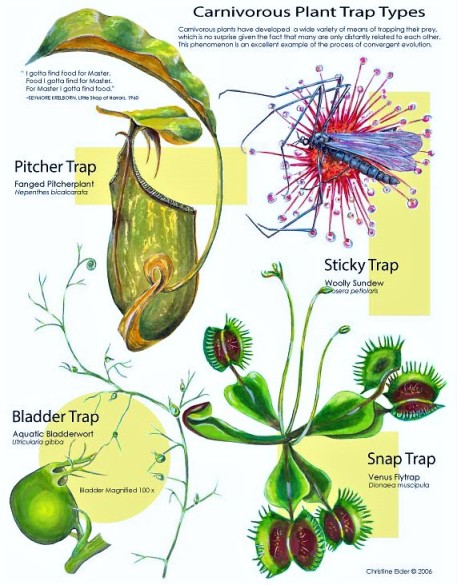
- Scientists have identified the evolutionary pathway that led some plants to turn carnivorous, a finding that explains why pitcher plants from different parts of the world appear strikingly similar despite having evolved independently.
- The study probes the origins of carnivory in several distantly related plants — including the Australian, Asian and American pitcher plants, which appear strikingly similar to the human (or insect) eye.
Proteins as enzymes:
- Although each species developed carnivory independently, the research concludes that the biological machinery required for digesting insects evolved in a strikingly similar fashion.
- All three species, plant protein families that originally assisted in self-defense against disease and other stresses developed into the digestive enzymes we see today, genetic clues suggest.
- These enzymes include basic chitinase, which breaks down chitin — the major component of insects’ hard, exterior exoskeletons — and purple acid phosphatase, which enables plants to obtain phosphorus, a critical nutrient, from victims’ body parts.
Pitcher Plant:
- Pitcher plants capture insects by luring them into a trap — a cupped leaf with a waxy, slippery interior that makes it difficult to climb out. A soup of digestive fluids sits at the bottom of this chamber and breaks down the flesh and exoskeletons of prey.
 Contraceptive injection for men passes test on a monkey
Contraceptive injection for men passes test on a monkey
- Bringing the prospect of an alternative form of birth control for humans closer. An injectable male contraceptive that blocks sperm flow with a gel has been successful in monkey trials.
 The trial and effect:
The trial and effect:- The contraceptive called Vasalgel provided effective birth control in rhesus monkey groups for more than one year, according to researchers from the California National Primate Research Center in the U.S.
- With proof of efficacy in monkeys and rabbits, preparations are being made for the first clinical trial in humans. The trial used Vasalgel in groups of rhesus macaques — confirming previous preclinical findings in rabbits on the efficacy of the new device.
- The contraceptive effect of Vasalgel has been “reversed” in a rabbit model by flushing the material out with a simple sodium bicarbonate solution.
About Vasalgel:
- Vasalgel is a high molecular weight polymer that consists of styrene-alt-maleic acid (SMA) dissolved in dimethyl sulfoxide and could be the first long-acting, non-hormonal, potentially reversible male contraceptive to reach market.
- The polymer forms a hydrogel after injection into the vas deferens, creating a blockage to the passage of sperm. It is thought that fluids are able to pass slowly through the gel, reducing back-pressure on the epididymis (the sperm storage area) that has been noted after vasectomy.
- The purpose of the current study was to put Vasalgel to the ultimate test — preventing pregnancy, not just eliminating sperm — in larger animals more anatomically similar to humans, before human use.
 Centre allows PMGKY deposits in parts
Centre allows PMGKY deposits in parts

- The Govt. of India has allowed declarants those disclosing unaccounted income under the Pradhan Mantri Garib Kalyan Yojana (PMGKY) to make deposits under the scheme on more than one occasion.
- Introduced after the demonetisation of high-value currency notes in November 2016, the scheme permits tax evaders to voluntarily disclose their unaccounted income, pay 50% tax on it and park another 25% into a four-year interest-free deposit.
 ‘Beijing has no military plans in Hambantota’
‘Beijing has no military plans in Hambantota’

- China’s state-run tabloid Global Times has accused India of needlessly raising concerns about military activity in Hambantota — a strategically important port in Sri Lanka that is being developed by China.
- Beijing would not allow Chinese military activity Hambantota were meant to “pacify” India. “Sri Lanka’s vow not to allow Chinese activity at the Hambantota port is meant to pacify India, but is ‘unnecessary’ since the port has always been meant for civilian use, and India is too sensitive over China’s presence in the Indian Ocean.
Hambantota hurdles:
- Hambantota port in Sri lanka being developed by the China, who carried out major infrastructural work at the Hambantota port in southern coast of the island nation, has put a heavy burden on the country.
- The port of Hambantota was conceived as a major Sri Lanka-China project during the presidency of Mahinda Rajapakse, but the controversy around the debt burden has slowed down the project.
 China to the rescue of Pak. again
China to the rescue of Pak. again
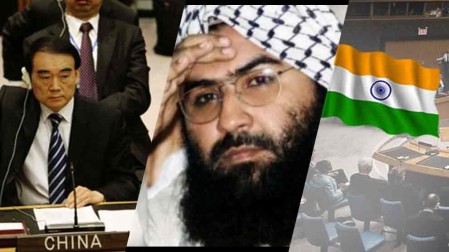
- China has opposed a U.S.-led proposal in the UN Security Council to designate Pakistan-based Jaish-e-Mohammad’s founder Masood Azhar a global terrorist, more than a month after it vetoed an earlier proposal for the same.
- The “technical hold” put by China on the proposal jointly moved by the U.S., the U.K. and France indicates its continued eagerness to shield Pakistan.
- When the UNSC meets as al-Qaeda, Taliban & IS Sanctions Committees, it works on the principle of ‘unanimity and anonymity’ — a single member’s opposition amounts to a veto, and the deliberations and the voting will remain secret.
Pakistan Action in Fear:
- Pakistan had recently said the JeM leader had been put under house arrest, even as it became clear that the outgoing Obama administration had renewed the proposal to designate Azhar terrorist, immediately after the Chinese veto in December.
- The new Donald Trump administration in the U.S. has also signalled it would be tough on questions of terrorist designations.
Chinese Checkers:
- Last year, China put the proposal on hold, first for six months, and then extended it for three months before finally blocking it altogether. Once it is ‘blocked,’ a new proposal can be moved.
- China has so far refused to explain how it distinguishes the leader- Masood Azhar from the organisation Jaish-e-Mohammad.
- China has been trying to persuade Pakistan to roll back its support for Azhar, but the JeM leader is far too influential in the Pakistani establishment to be abandoned.
India’s Moves:
- India had last year opposed Chines practice of restrain and blockade which it called the “hidden veto”. The JeM is already a UN-designated terrorist organisation but China don’t want to make it a global issue.
- The question of Azhar — who was among the terrorists released by India following the hijacking of IC-814 in 1999 — came to the foreground last year after India held him responsible for the Pathankot attack.
- The new proposal has removed the mention of Pakistan, which the Chinese had cited as reason for its objection to the earlier one.
- India hopes that the Trump administration policy at the UN will signal continuity with the Obama administration on the issue. “Since President Trump has enhanced the Obama ‘War on Terror’ to the ‘Eradication of Terror’, the world can expect our result-driven Secretary of State Rex Tillerson, in the mould of James Baker aka the ‘Velvet Hammer’, to communicate with China about the error of her ways.
 U.S. changes laws for easy transfer of arms to India
U.S. changes laws for easy transfer of arms to India
- The U.S. has made changes in its export control laws that will benefit India by facilitating smoother transfer of technologies and arms.
- The new rule that makes changes in the export control laws “creates a presumption of approval” for Indian firms seeking to import the Commerce Department-controlled military items, except weapons of mass destruction-related goods.
 Uncertainty over U.S. nuclear plants for India
Uncertainty over U.S. nuclear plants for India

- There is uncertainty surrounding the construction of U.S. nuclear reactors in India after Toshiba Corp decided to move out of the reactor building business.
- Following the Indo-U.S. nuclear deal, India has been in discussion with Toshiba’s U.S.-based Westinghouse since 2005 to build six AP1000 nuclear reactors.
- After protracted negotiations and concerns on the nuclear liability there were hopes that a deal would be concluded soon.
- Toshiba had acquired the U.S.-based Westinghouse, which specialises in nuclear reactors, in 2006.
- Last week, it was reported that Toshiba was planning to withdraw from building nuclear plants in the U.K. and India.
 Justice Karnan faces contempt action
Justice Karnan faces contempt action
For the first time in the country’s history, seven seniormost Supreme Court judges led by Chief Justice of India J.S. Khehar are convening in open court on Wednesday to initiate suo motu contempt action against sitting Calcutta High Court judge, Justice C.S. Karnan, for “scurrilous remarks” made against senior judges of the Supreme Court and the High Courts and impeding the process of justice administration.
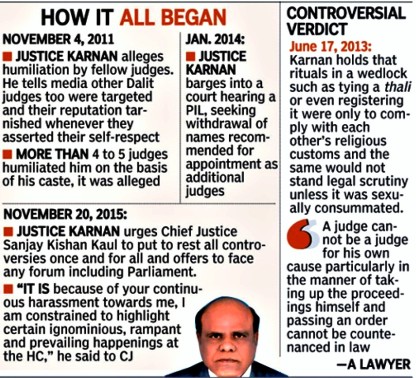
Summoned, warned:
- Justice Karnan, who was a judge of the Madras High Court, was once summoned to the Supreme Court and warned in person by then Chief Justice of India T.S. Thakur for his offensive behaviour towards the Chief Justice of the High Court and for imputing casteist motives on his fellow judges.
- In February 2016, as a Madras High Court judge, he had turned judicial hierarchy upside down by ‘staying’ his own transfer to the Calcutta High Court, forcing the Supreme Court to authorise a freeze on his functions as a judge.
- In the past, Justice Karnan had frequently raised the issue of his caste status, complaining to the National Commission for Scheduled Castes and even threatening to file criminal charges under the Scheduled Castes and Scheduled Tribes (Prevention of Atrocities) Act against Chief Justices and other judges.
Strong message:
- The contempt action, an unprecedented move by the highest judiciary to put its house in order and send a strong message that indiscipline would not be tolerated, comes on the very day Justice Karnan is to appear in person to argue his case against his transfer to the Calcutta High Court.
- A letter sent by Justice Karnan to the Prime Minister allegedly making serious allegations of corruption against sitting and retired High Court and Supreme Court judges has been doing the rounds. the seven-judge Bench is aware of “several letters” written by Justice Karnan, and decided to move in.
 Talks to end Manipur blockade fail
Talks to end Manipur blockade fail
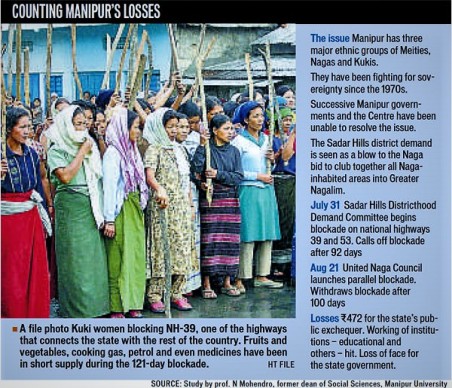
- The tripartite talks to end the over three-month-long economic blockade of a crucial highway in Manipur failed to make any headway on 7 February 2017, with the Naga group spearheading it refusing to relent from its position of not allowing seven districts to be carved out.
- Official sources said the Centre is disappointed with the outcome of the meeting that took place in Imphal where representative from the Union Home Ministry, State government and United Naga Council (UNC) participated.
- All the three had earlier met in the national capital on February 3 and the Centre had expressed hope that the blockade would end soon.
- The sources said that earlier the “Manipur government was not cooperating and now the UNC is taking a different stand”. However, they said efforts will be on to end the blockade of poll-bound State at the earliest.
 SC dismisses TN’s review plea on remission power
SC dismisses TN’s review plea on remission power
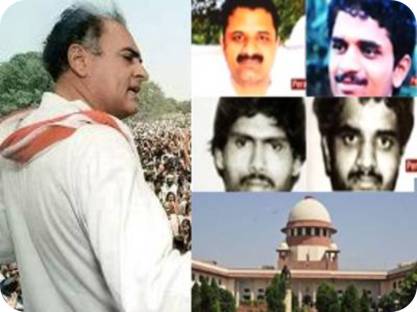
- The Supreme Court has dismissed a review petition filed by the Tamil Nadu government against a 2015 Constitution Bench judgment that a State government has no suo motu power to remit sentences of persons convicted under a Central law and cases investigated by a Central agency like the CBI.
- The verdict was based on a challenge by the Centre to Tamil Nadu’s move to remit the life sentence of seven convicts in the Rajiv Gandhi assassination case.
Background:
- In 2015, the judgment had held that the Centre, and not the State government, would have “primacy” in deciding whether persons convicted in matters of the CBI or a Central agency should be released or not on remission.
- Interpreting Section 435 (2) of the Cr.PC, the court had held that the word ‘consultation’ meant ‘concurrence’. This meant that the Tamil Nadu government should have got the prior consent of the Centre before issuing its February 19, 2014 order to remit the life sentence of seven convicts in the Rajiv Gandhi case.
 India to frame policy on synthetic biology
India to frame policy on synthetic biology

- India is taking its first steps to evolve a policy on synthetic biology, an emerging science through which new life forms can potentially be made in labs and existing life forms, such as bacteria and other microbes, tweaked to produce specific proteins or chemically useful products.
- The Environment Ministry will be convening a group of experts on biodiversity and biotechnology, to assess synthetic biology work pursued in Indian labs, potential benefits and risks, and the implications of the trans-boundary movement of such life forms.
- Synthetic biology in microbial systems holds promise for production of drugs, vaccines, fuel components and other chemicals.
- A popular example is the production of artemisinin, a powerful anti-malarial drug, in yeast, at a commercial level.
- Microorganisms have also been constructed to act as sensors that can detect a toxin in vitro (outside a living organism) or in vivo (inside a living organism).
- In December 2016, officials from the Environment Ministry participated in the United Nations Biodiversity Conference of the Convention on Biological Diversity (CBD) at Cancun, Mexico, where about 8,000 delegates from 180 countries discussed matters related to biodiversity.
- There are assorted labs in India that work on synthetic biology. India, so far, has no policy on synthetic biology, and according to a presentation made at the venue, it has promised to “put in place a Synthetic Biology Team for articulating India’s view” at a forthcoming meeting.
 ‘1892 Cauvery pact an unequal bargain’
‘1892 Cauvery pact an unequal bargain’
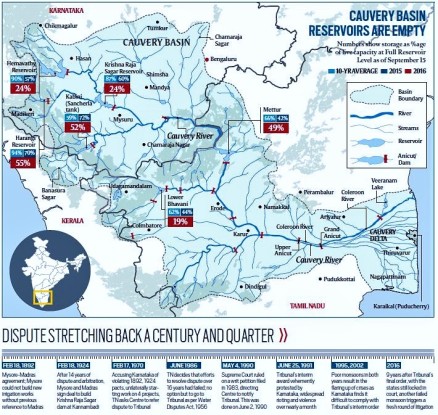
- The 1892 agreement between the erstwhile Mysore and Madras Governments was an “unconscionable bargain” to share the Cauvery river water, Karnataka told the Supreme Court on 7 February 2017.
- The submission was made before the Supreme Court bench on the first day of day to day hearing of appeals filed by Karnataka, Tamil Nadu and Kerala against the final award on the Cauvery Water Dispute Tribunal’s decision on water sharing. The Supreme Court will resume hearing on the appeal on March 21.
- Tamil Nadu had in the tribunal traced the correspondence between the State of Mysore and Madras for nearly two years culminating in the agreement to the satisfaction of both the States.
- Mr. Nariman submitted that the 1892 agreement, which, he said, was the parent of the 1924 pact, dictated that Mysore could not develop any irrigation infrastructure on the river without the previous consent of the Madras government.
